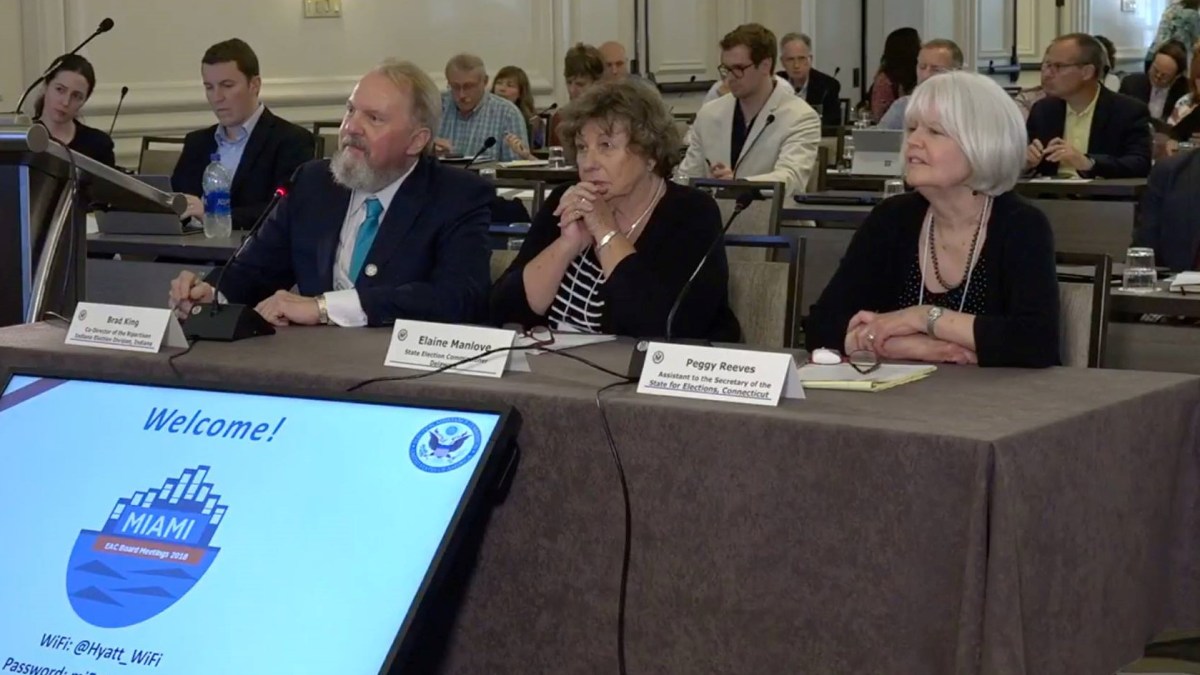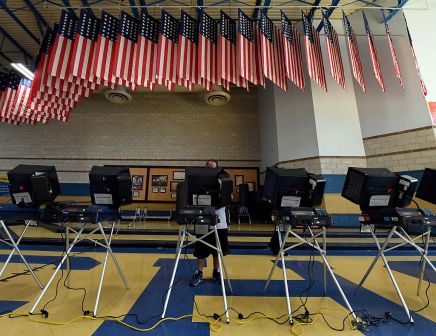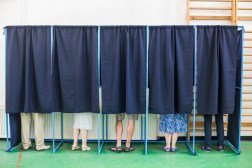First-of-its-kind forum on election security gathers state and local officials with feds

A top U.S. election official says that the allegations of Russian meddling in the 2016 presidential election came with a silver lining: At least we’re now focusing on election security.
Christy McCormick, a member of the Election Assistance Commission, told a crowd of state and local election officials from across the country on Wednesday that the events of 2016 jump-started a focus on election security that was not as prominent before.
“I know that election officials have always focused on these problems to some degree. Not so laserly focused on election security but I think this has brought this to the forefront for us in the last couple of years. So if there’s a good consequence to what happened, that is one of them,” McCormick said Wednesday at a public forum the EAC hosted in Miami to allow the state and local officials to discuss their election security plans ahead of upcoming elections.
The first-of-its-kind public forum came about a month after federal spending legislation provided states with $380 million to use toward election security. Those funds, which are being parsed out by EAC using a population-based formula from the 2002 Help America Vote Act, officially became available to states on Tuesday.
While replacing paperless voting machines and implementing paper audits have been at the top of the priorities list for election security advocates — in the public an private sector alike — EAC Chairman Thomas Hicks acknowledged that there are “few restrictions” on how states can use the money.
Expanding the effort
With much public attention being devoted to securing voting machines, some at Wednesday’s public forum insisted that officials also make efforts to secure other aspects of election infrastructure, such as voter registration systems. Lance Gough, executive director of the Chicago Board of Elections, played down the possibility of a major hack on voting machines.
“That’s very hard to do, considering we have so many different pieces of equipment out there, and you would have to attack every single one that’s not tied up to the internet or not online,” Gough said.
Among Russia’s various apparent hacking efforts leading up to the 2016 election, hackers gained access to personal information of tens of thousands of voters in an Illinois database, Gough’s home state.
Experts do warn, however, that despite the diversity of voting equipment throughout the country, there are ways to coordinate hacks that affect a large number of machines.
Elaine Manlove, Delaware’s election commissioner, noted the irony over the recent push for paper ballots. Delaware is one of five states that currently exclusively employ paperless machines, according to Verified Voting. Manlove said Delaware was praised for being technologically advanced when it implemented purely electronic machines in the early 2000s. Things are different now, she said.
“Now people are calling saying ‘Where is the paper trail?’ So times change. But as we look at new voting machines, security is of course a big part of that,” Manlove said. “The public is concerned now about the paper trail where they weren’t. They also don’t understand that it’s a process to find new voting machines. I think the general public sees ‘Well you don’t have a paper trail, so let’s just go buy new machines’ as if I can walk into Staples and load up a cart.”
Delaware is in the procurement process for voting machines that produce a paper record. Manlove said the new HAVA fund is likely to contribute to that.
While hacking worries largely brought about the $380 million fund and discussions like Wednesday’s forum, Dwight Shellman, an election official from Colorado made a plea election technology not be put in a bad light wholesale. If that happens, he said, foreign adversaries win simply by sowing doubt in the system.
“The technology must be used wisely and knowing its vulnerabilities and making sure we mitigate those vulnerabilities,” Shellman said. “And I raise that because so much of the dialogue here I think is counterproductive. Messaging matters. And the Russians aren’t going to have to hack a single thing if the messaging results in our citizenry just concluding that it’s hopeless and we’re all vulnerable.






